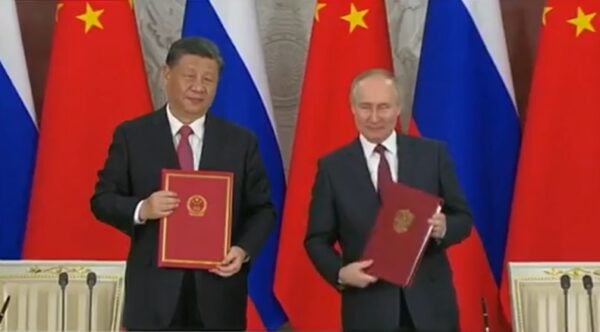Guest Post By Shawn Bradley Witzemann (TMI)
As was reported by The Gateway Pundit, U.S. Secretary of State Anthony Blinken’s reiteration of the long-standing “One China Policy” provides tacit approval for China to invade Taiwan.
But a recent poll, released by the Taiwanese Public Opinion Foundation, suggests a substantial shift in Taiwan’s political landscape which would render military invasion unnecessary.
Here’s why @SecBlinken changed his tone on Taiwan. Not because the US has changed its war plans against China. No, it’s because pro-China political parties lead the polls in Taiwan. If they win in 2024 they will peacefully join China. Bad for US war plans. pic.twitter.com/x5K3xswoQQ
— Kim Dotcom (@KimDotcom) June 20, 2023
A June 16 story from the South China Morning Post further explains how demographic changes in the Taiwanese electorate threaten to irrevocably alter the current balance of power. If polling holds through scheduled elections in 2024, the resulting outcome would almost certainly undermine domestic support for independence from mainland China.
In a situation where the Taiwanese Democratic Progressive Party is the minority, Beijing has no logical motive to conduct a military invasion of the island. As demonstrated in multiple historical instances around the globe, it’s much more effective to consolidate power and influence though subversion and/or rigging of elections — Sun Tzu’s Art of War is always applicable.
In a Monday interview with NPR, Secretary Blinken addressed the potential for military conflict, and explained State Department opposition to any unilateral action that would challenge the status quo.
“Taiwan will be resolved peacefully…neither side will take any unilateral actions that could upset the status quo,” Blinken said, “We reiterated the policy that we’ve followed from administration to administration, Republican and Democrat alike, of the “one China” policy. That’s not changed. I made that very clear. We don’t support Taiwan’s independence.”
When asked about bi-partisan calls from congress for a more hawkish approach to Beijing, Blinken redirected and explained how a lack of diplomacy would be counterproductive to American interests — dodging any insinuation that U.S. influence is on the decline.
“We’re now dealing with the challenges that China poses from a position of much greater strength than when we started,” he said, “And so, from that new foundation that we built, we’re better able to deal with the profound differences as well as – again, to look for areas where it makes sense to cooperate. But the lead instrument we have now in doing that is our diplomacy.”
Unfortunately for the United States, any diplomacy efforts remain hampered by an inept Biden Administration which has repeatedly failed to show strength — becoming a repetitive joke on the world stage, and simultaneously pushing policy in Ukraine that could lead to nuclear conflict.
As was reported yesterday, an increasingly complex geopolitical reality is emerging and China is poised to seize the opportunity. With thousands of Chinese migrants streaming freely across the southern border and into the United States, Taiwan may be the least of our concerns.
The Art of War teaches:
“Every battle is won or lost before it is ever fought.”
Beijing will delay a military confrontation with the US for as long as possible. Because it would be foolish to start a war on its own front lawn.
And as time passes, more countries will join China to stand up to the US.
By then, China will win without bloodshed.
— Keawe Wong 凯王 (@KeaweWong) June 19, 2023
In the global struggle to secure independence from the Chinese Communist Party, Taiwan may already be lost.
America’s fate is hanging in the balance.


